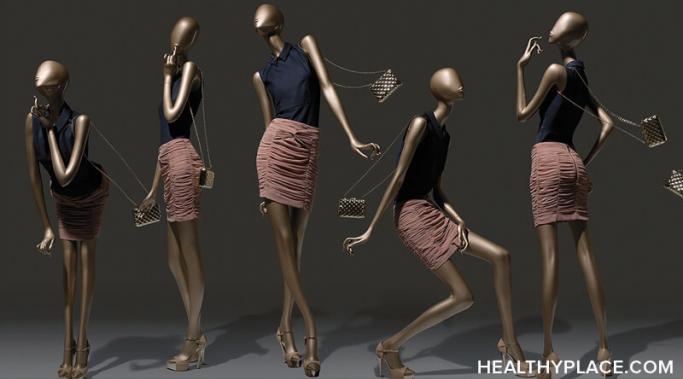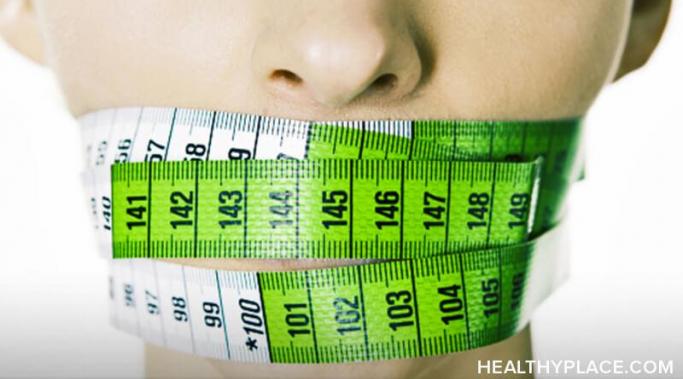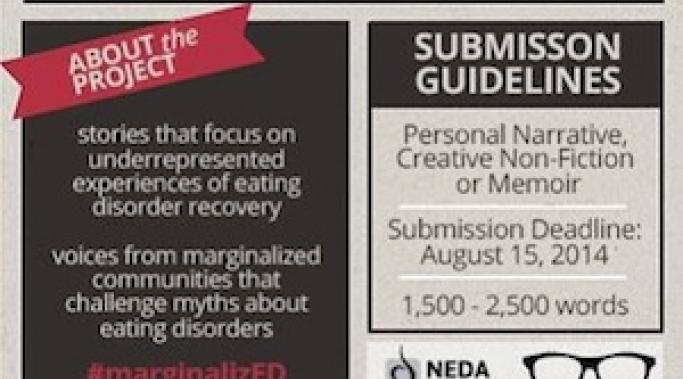Last week, I came across the idea of "thin privilege," a term I had been unfamiliar with up to that point, and as I researched this concept, I was forced to confront the role of thin privilege in eating disorder treatment—my own experience included. Thin privilege is a systemic ease and entitlement in which people with smaller bodies tend to move through society. More opportunities and advantages are often afforded to people who look the way mainstream culture has deemed acceptable or ideal. In terms of the eating disorder population, those who mirror the stereotype of "emaciated" are more likely to have their illnesses treated with serious concern and validation than people whose bodies do not reflect this arbitrary mold. But if eating disorder recovery is to be made accessible for all those who suffer—not based on outward size or shape—then it's time to address the role of thin privilege in eating disorder treatment.
Media Portrayal of Eating Disorders
Some men play a role in causing eating disorders in women. When I first began to experiment with the behaviors that would morph into a severe battle with anorexia, my 15-year-old self had no idea I was about to be complicit in a systemic intersection between eating disorders and the patriarchy. Even as a teenager, I admired the ethos of feminism—I was drawn to independent, fierce, opinionated women, and I sought to become one myself. But I also harbored a secret, a paradox that challenged the same feminism I tried to be part of. I was determined to curate a body that mirrored cultural standards of beauty which had been impressed on females like me from the time I could remember. So with each calorie I restricted or meal I avoided, I reaffirmed the subtle power of gender inequality. I was not aware of this back then, but since I am now, I want to explore that men can play a role in causing eating disorders in women.
As if this illness was not destructive enough already, a harrowing trend has developed in recent years, whereby the presence of eating disorders in young children has become more and more rampant. In fact, the number of children under the age of 12 who exhibit symptoms of an eating disorder has risen to the extent that anorexia and bulimia are now more common pediatric illnesses than type-2 diabetes. This is an alarming data point and combined with the reality that eating disorders are often undiagnosed or inadequately treated, this leaves many children at an increased risk for complications in both their physical growth and mental health as they become older. For this reason, it is crucial to understand how to identify the presence of eating disorders in young children, then to seek prompt and thorough intervention for them.
When was the last time any of us heard someone talk about a connection between men and eating disorders? My hunch is, not recently. And that's because this segment of the eating disorder population is rarely discussed. A common assumption is that eating disorders only affect women and girls, but this eating disorder stereotype is harmful—sometimes even lethal—to the estimated 10 million boys and men who suffer from this illness in the United States. Due to a lack of awareness about eating disorders as nondiscriminatory between genders, men often feel amplified shame around their struggle which can deter them from seeking out resources, treatment, and a healing community. So as a culture, we need to break this harmful stigma. We need to talk vulnerably and honestly about men and eating disorders.
In the midst of my recovery process from anorexia and all the associated behaviors that came with it, I have often asked myself this recurring question: is there a connection between puberty and eating disorders? While I cannot speak for every person who has suffered from an eating disorder, on the basis of my own narrative, these two experiences are linked, and there are several reasons for this.
We need to debunk eating disorder myths because, despite their jarring prevalence in modern society, eating disorders are often misunderstood by people who have not experienced them firsthand. Because of this limited consideration and knowledge, common myths about eating disorders have emerged that need to be debunked.
If you have access to the Internet, then chances are, you're aware of the popular "fitspiration" trend, but have you considered—or worse, experienced—its influence on the spread of eating disorders? For several years, fitspiration has been gaining traction and momentum on social media. Self-appointed wellness experts are using the buzzword as a hashtag for their Instagram posts. Fitness-themed Pinterest boards are cluttered with images of men and women exercising their toned physiques, overlaid with mantras like, "Strong is the new skinny." Upon first glance, these phrases seem innocuous—progressive shifts toward strength over thinness. But the truth is, fitspiration can influence eating disorder behaviors, so it's important to examine the subliminal messages beneath the motivational words and snapshots.
Sexism contributes to the prevalence of eating disorders in women, but on the flip side, approaching eating disorders from a feminist outlook can be an important tool for recovery. Our social constructs view gender through a binary lens in which men are the objectifiers and women are the objectified, causing female bodies to be sexualized. This idea makes women feel pressured to meet the conventional standards of beauty, often resorting to extreme behaviors if their physical features are outside the “norm.” But dismantling these restrictive and harmful stereotypes could promote more body acceptance in our culture. Because sexism and eating disorders are connected, a feminist perspective can help to reverse this issue.
As a voice for eating disorders awareness, education, and advocacy, I am glad to have a platform such as this blog where my voice can be "heard." Too often, popular media portrays a one-dimensional view of eating disorders. That said, I struggle with the fact that I am the exact stereotype that you see on television and in movies. I am a Lifetime Movie or After School Special waiting to happen. I am white, female, young, heterosexual, intelligent, middle class, and anorexic.
I recently found myself on the road for work, traveling and connecting with a lot of people and, therefore, creating wonderful memories with them. When I had a quiet moment to myself, while waiting at the airport, I came across an article written by a celebrity. The article was her first-hand account of a long battle with her eating disorder. Of course, I felt compelled to read it once I got through the first few lines and realized what it was about.









